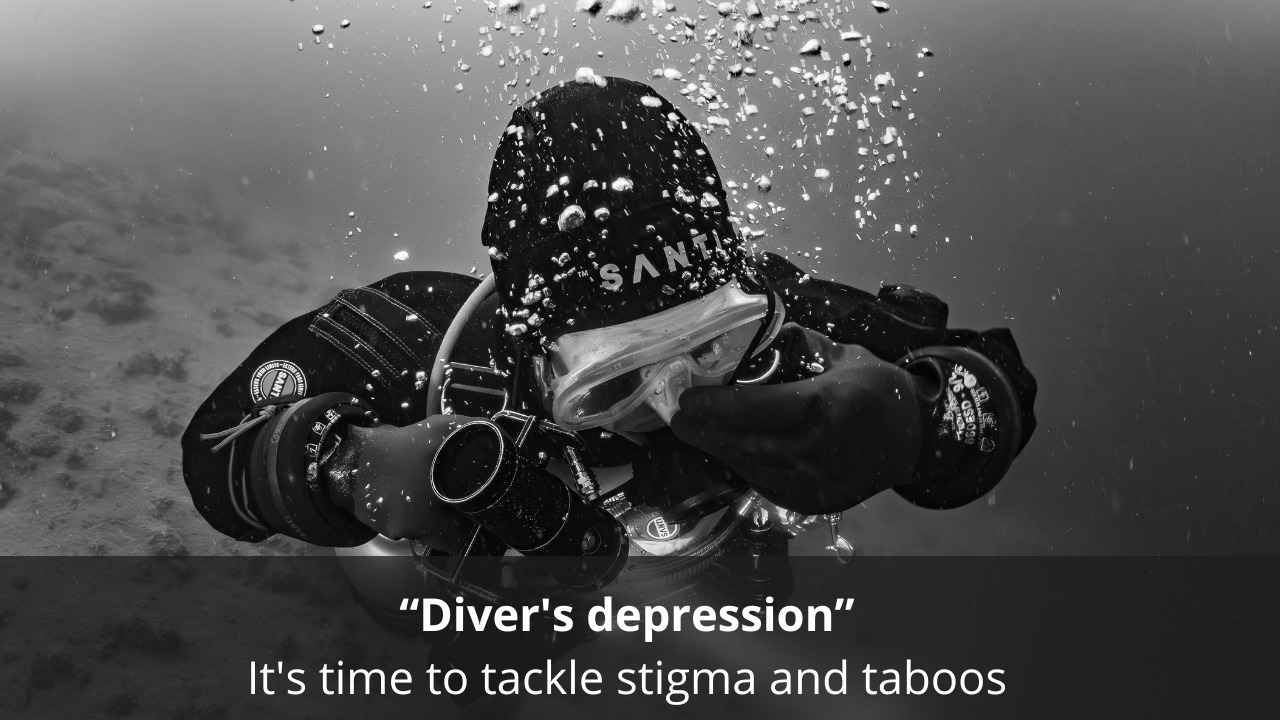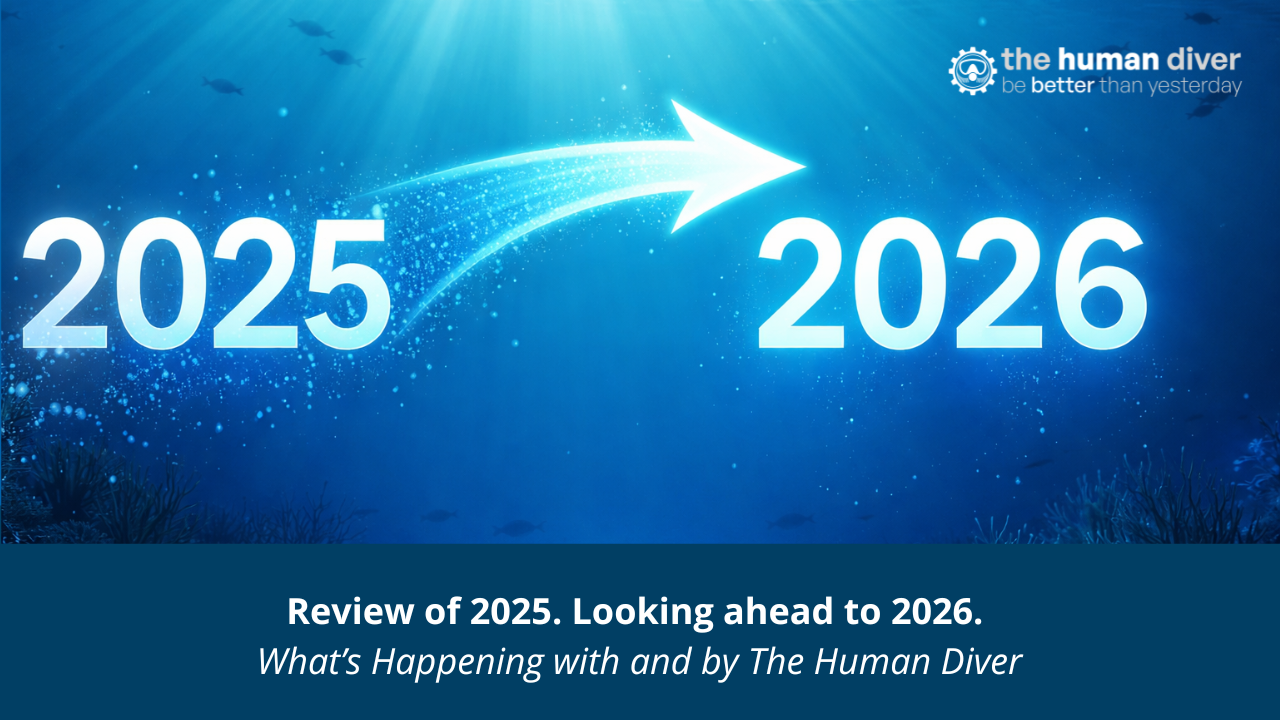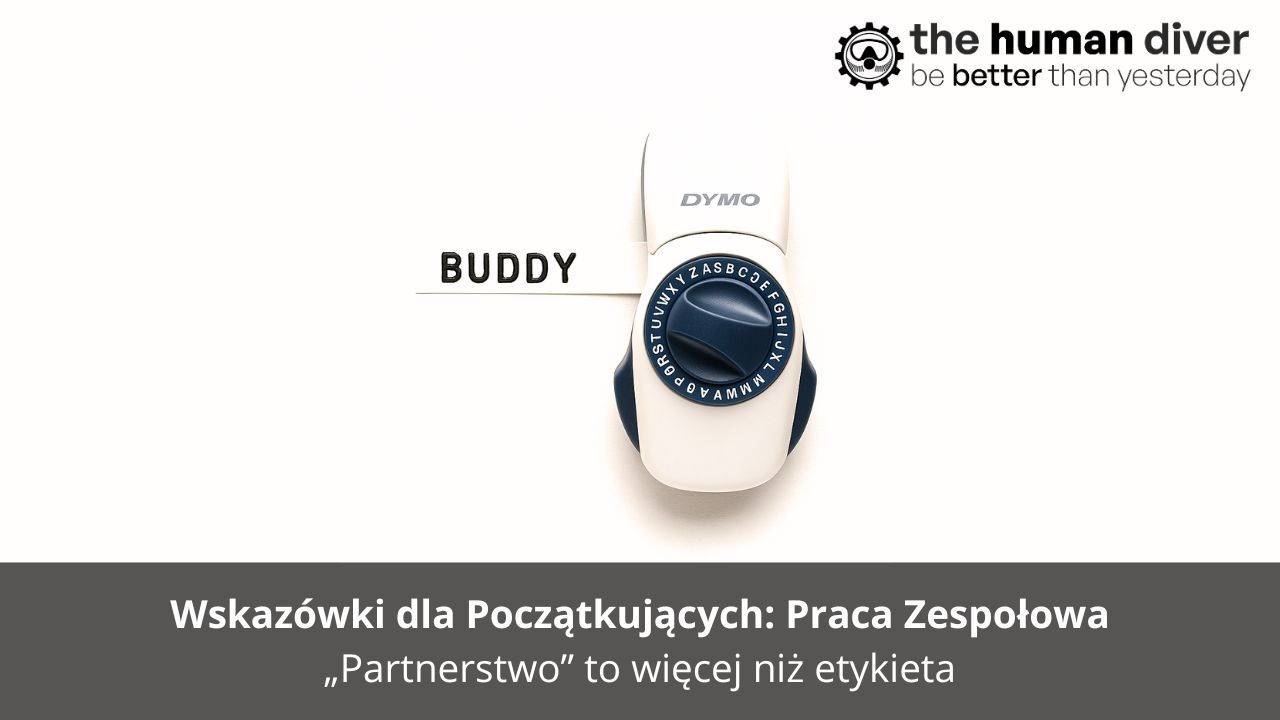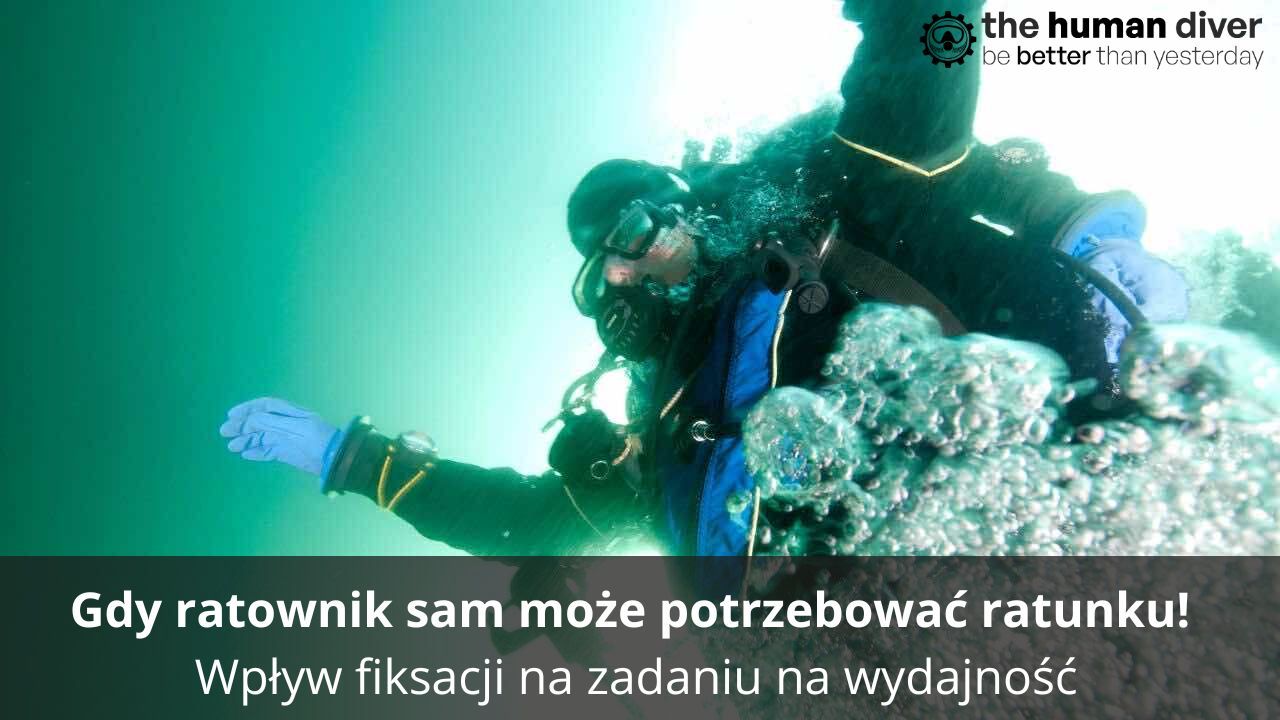
Top Tips for Diving Instructors: Teamwork
Aug 27, 2025When the Team Isn’t a Team
I was part of a ‘team’ that was undertaking some training prior to a reassessment for a technical diver training programme. There were three of us involved. Two of us had been fairly busy developing our team and technical skills, making sure that we could stay neutrally-buoyant (+/- 0.5m) and in trim while doing multiple skills and failures – all part of the assessment criteria. The third member hadn’t done much at all in the previous six months as they had been concentrating on completing their IDC and IE.
The first dive didn’t go to plan! After doing a series of simple drills at 6m, we descended to 21m and swam, mid-water, at 21m, about 5m from the bottom. After about 3-4 mins, we stopped mid-water, and then one of us had to put up a dSMB. The clock started. As a team we had to ascend at 3m/min, 30 second stop, 30 sec move, staying together. When we got to 6m we had to do a gas switch to the stage which had 50% in it within 2 mins, and then a 1m/min ascent to the surface.
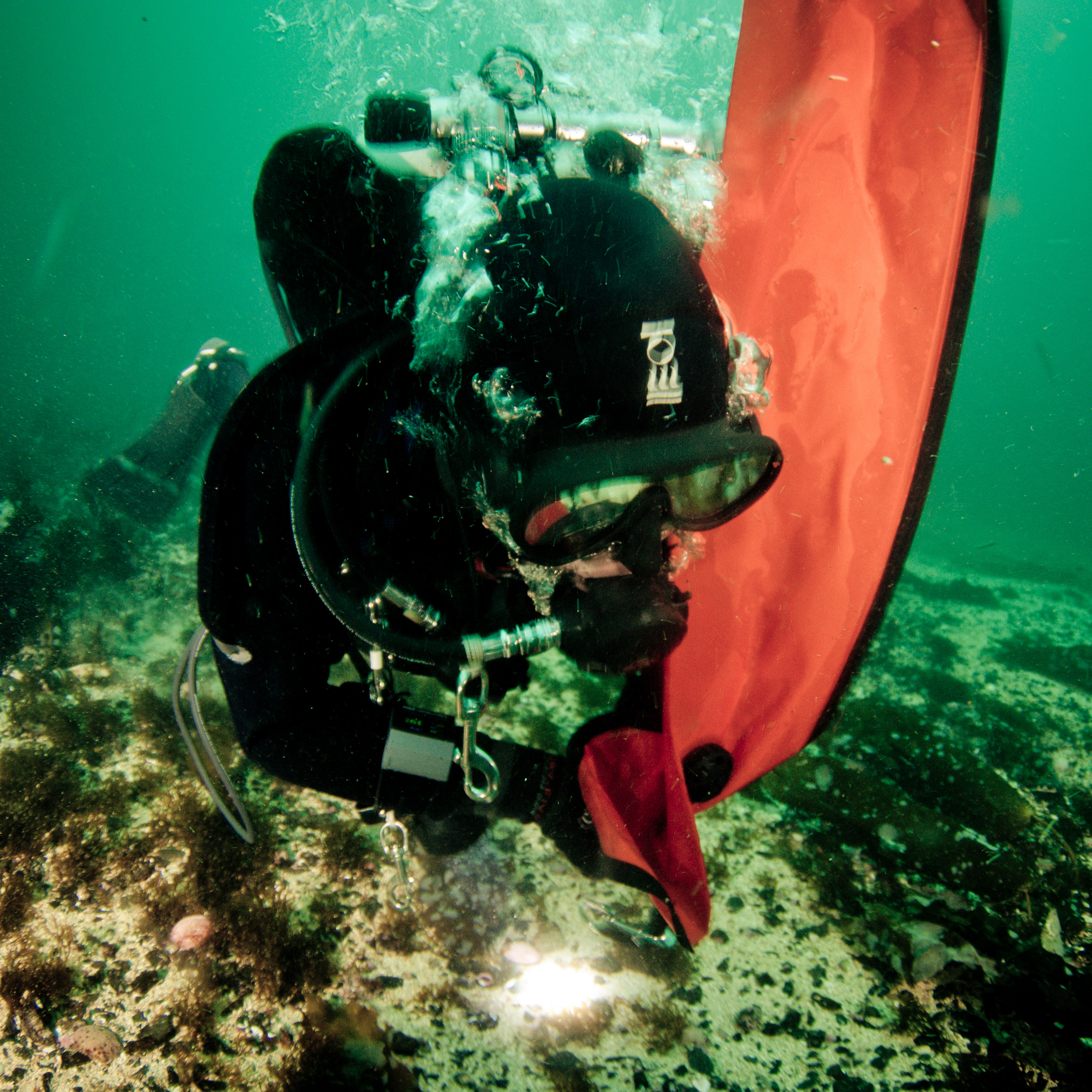
It was a mess. The diver who wasn’t well practised wrapped themselves up in line and lost control of buoyancy from 6m to the surface. Line was everywhere. When they surfaced, he laughed it off. I swore at them and told them this wasn’t a time for joking! Not great teamwork.
When we got out, we debriefed. It was a hard conversation. “Everyone just needs to be better prepared.” But it wasn’t about individual skills, it was about how we responded as a ‘team’. We didn’t know how to work together under stress because we hadn’t practised being a team in such a situation.
This failure wasn’t really about a lack of technical skills. It was a breakdown of the alignment of our goals, we lacked shared awareness, we had miscommunication, and trust was missing - the heart of teamwork. Our team had become fragmented because of different priorities in life, and we hadn’t noticed the stress developing. Laughing it off was just a coping mechanism for the third team member, and I took it personally.
We took time out to discuss the plan and understand what was going on in each other’s lives. We adjusted our approach and passed the course a few weeks later after some intensive weekends of training.
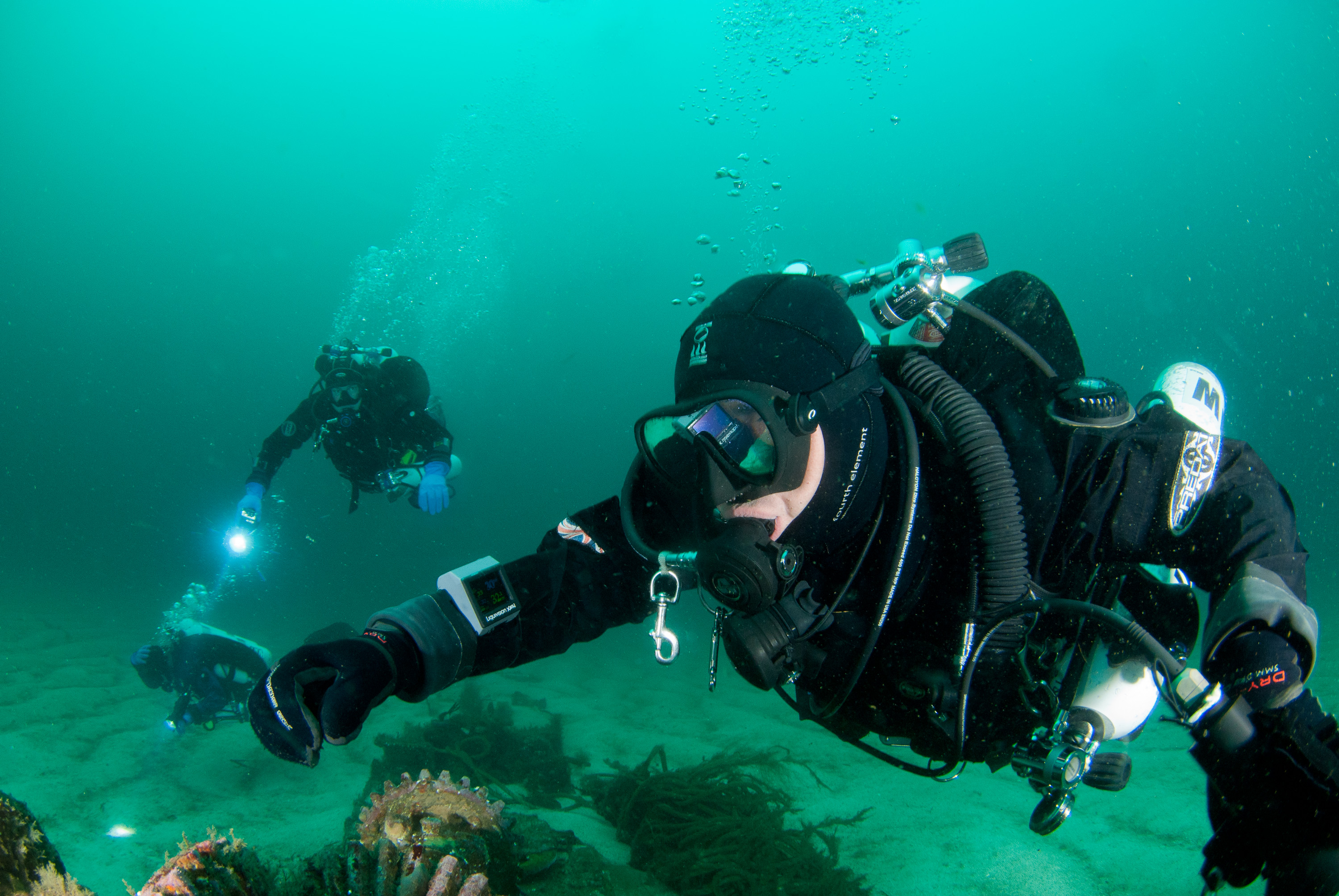
What Makes a Real Team Player?
Most competent diving instructors can spot a diver with solid trim, buoyancy, and gas management - technical skills. But the harder thing to detect, and even harder for instructors to teach, is the ability to function effectively in a team, especially when things go sideways.
In their 2020 study “Team Players: How Social Skills Improve Team Performance,” researchers Ben Weidmann and David Deming tackled this very issue. They found that some individuals consistently helped their teams perform better than expected, not just because they were smart or skilled, but because they had high social intelligence or SQ (slightly different to EQ). These ‘team players’ weren’t louder, smarter, or more experienced. They simply made their teams better.
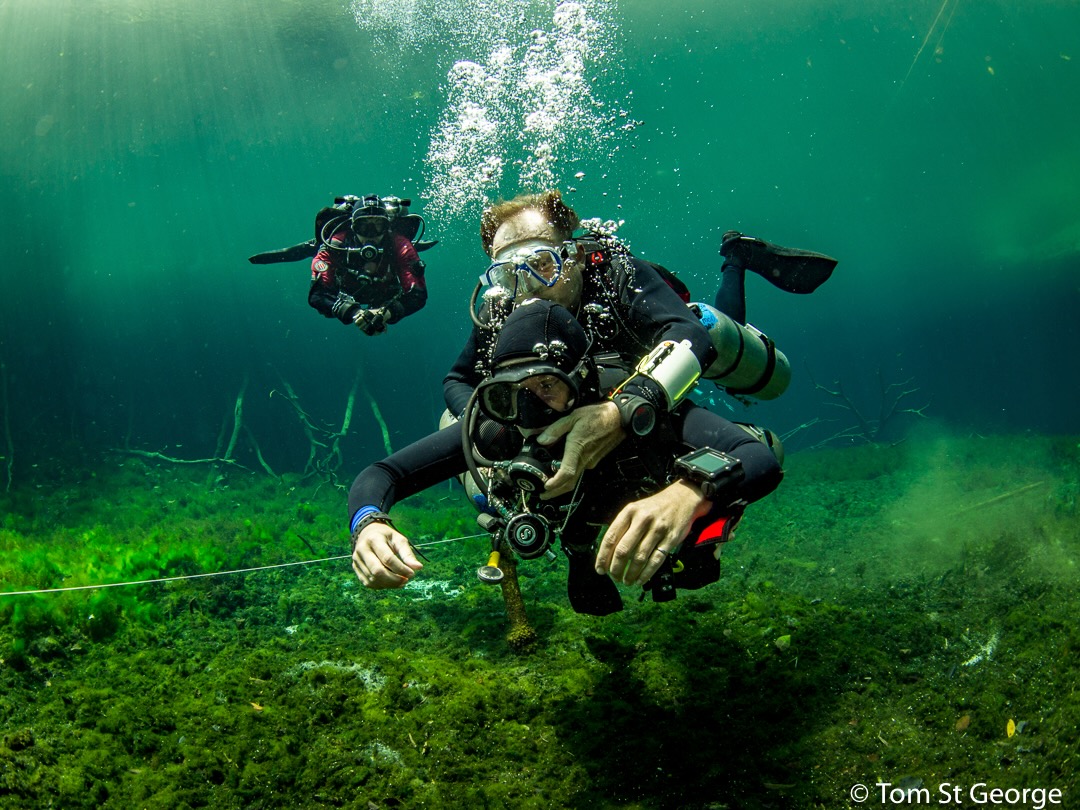
What does this mean for those who teach divers, especially those who are teaching technical or cave divers, where ‘team’ is much more important?
Firstly, it's not about personality. The study found that traditional traits like agreeableness, extraversion, or conscientiousness didn’t predict who was a good team player. What mattered was something subtler: the ability to read the room, something called ‘social intelligence.’ (SQ) The researchers measured this using a test called “Reading the Mind in the Eyes” which asks people to identify emotions just from pictures of others' eyes.
That ability to pick up on emotional cues, confusion, anxiety, confidence, and focus correlates strongly with improved team performance. And it matters even more in high-stress, low-visibility, time-sensitive environments like diving. Team players increase the chances that others will stay motivated to focus on the mundane but important, use time wisely, and adapt when things go wrong. Even when team members were working on independent tasks, being paired with someone who had high SQ improved their performance.
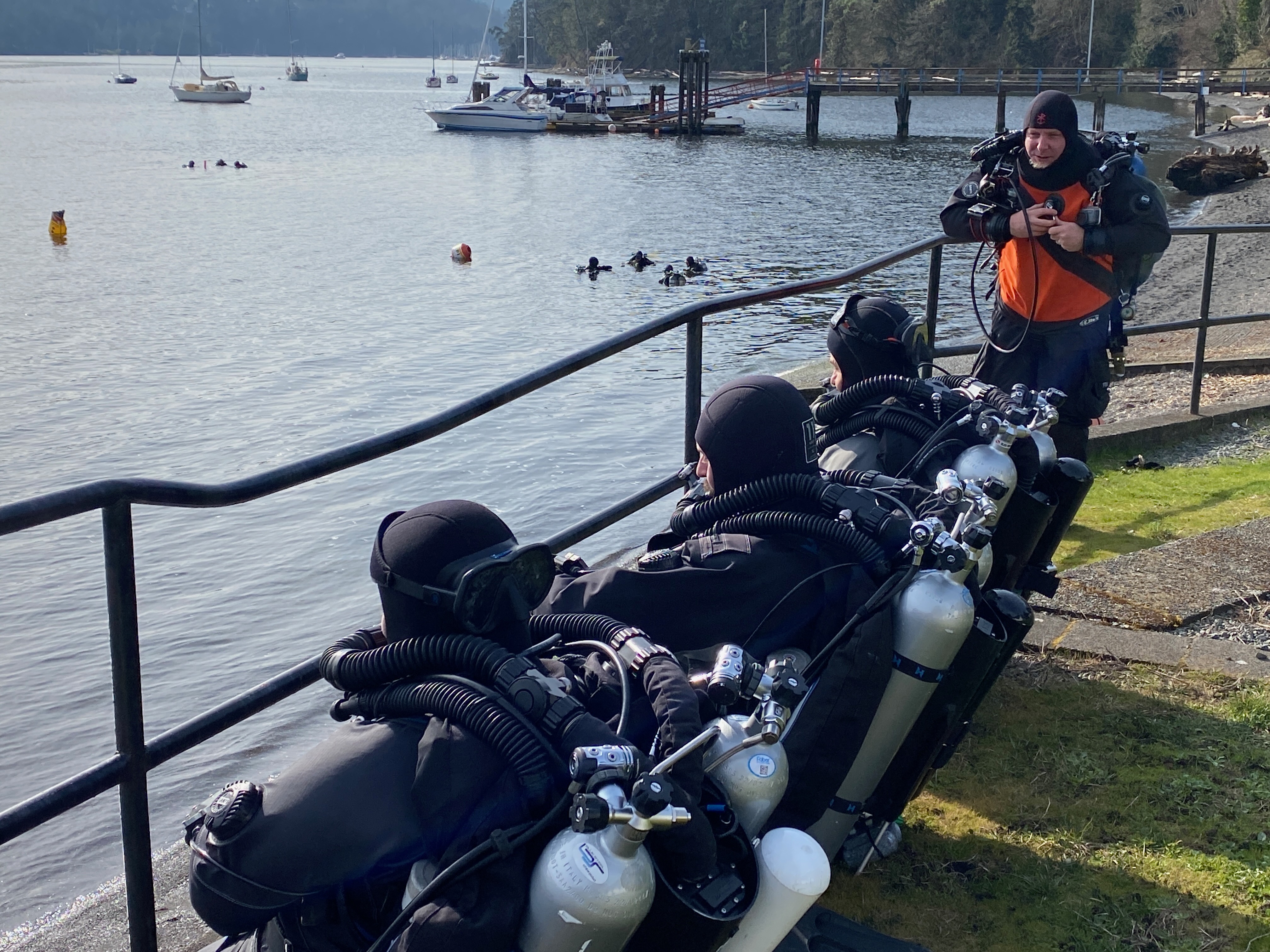
That’s a game-changer for instructors and those who are leading because of their social position (see this series of the new 'Top Tips for Diving Instructors' blogs for more on this). It means we can stop thinking about team skills as something fluffy or optional. They are as critical to mission success as gas planning or drill execution is. And they can be observed, developed, and debriefed. But you need to know what 'good' looks like to start with.
Let’s be clear: team players are not those who dominate discussions or always take the lead. They are those who notice the quiet hesitation in a teammate’s posture, who ask open questions to check understanding, and who stay flexible when the plan changes. They are comfortable with uncertainty. They help others succeed without making it about themselves.
Interestingly, the researchers found that this social skill (not IQ or technical competence) predicted performance on complex team tasks almost as much as individual task skill did, about 60% better. In other words, having someone with strong team skills in your dive group could make or break performance, regardless of their personal dive history.
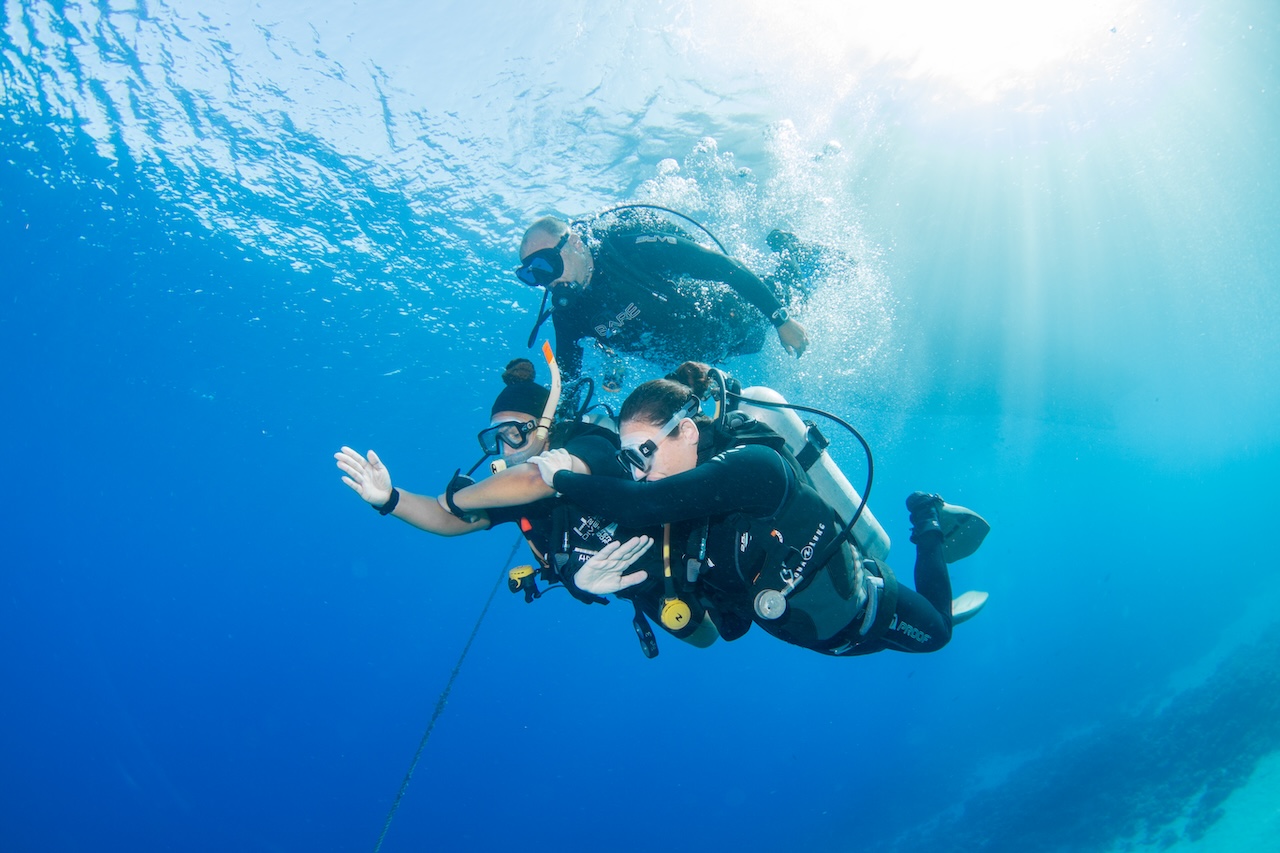
This has implications not only for how we teach students, but also how we lead courses, co-instruct with others, and assess team and individual performance. We need to start identifying, encouraging, and rewarding those behaviours that make everyone better, not just those that look good on video or in a photo! This is extremely hard, I know, given the social media culture that drives certain behaviours in the diving domain.
Practical Takeaways
Here are some practical takeaways to use in your instructional dives.
- Practice (and teach) teamwork explicitly. Don’t assume it will happen naturally. Use team-based drills where communication, adaptability, and mutual support are essential. Guy's blog on how he put this together for a new class gives you some pointers.
- Model team player behaviour. Show curiosity about others’ perspectives. Listen more than you speak. Ask rather than tell.
- Debrief the team, not just the individual. Ask, “What helped the team succeed?” or “What could we have done better together?” The Human Diver makes this easier with the pre-printed Wetnotes containing the UNITED-C and DEBrIEF models.
- Observe emotional cues. Look for body language, stress responses, and the unspoken. Highlight these to your team as part of the debrief and teach your students to notice them too.
- Redefine success. A successful dive isn’t just 'no incidents' or 'great trim', it’s how the team worked together under pressure. Importantly, that success continues when you reflect back on the dive and recognise how you did work together as a team so you can replicate it the next time around.
Teamwork isn’t an add-on. It’s an integral part of safe, enjoyable, high-performance diving. And as instructors, we have a duty to shape more than just individual skills; we’re shaping cultures of trust, communication, and shared responsibility. Be the team player your students need you to be. Be better than yesterday.
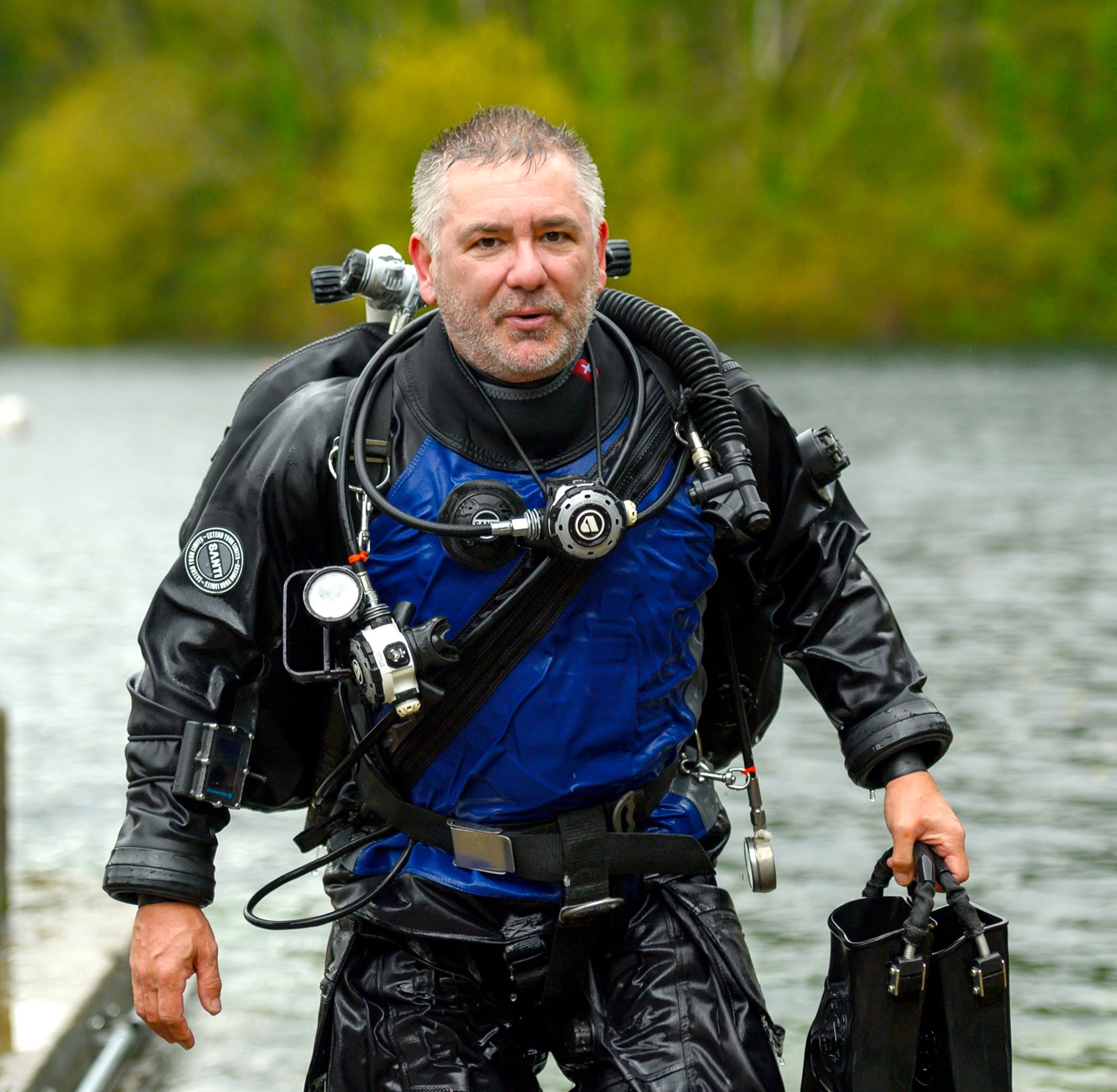
Gareth Lock is the owner of The Human Diver. Along with 12 other instructors, Gareth helps divers and teams improve safety and performance by bringing human factors and just culture into daily practice, so they can be better than yesterday. Through award-winning online and classroom-based learning programmes, we transform how people learn from mistakes, and how they lead, follow and communicate while under pressure. We’ve trained more than 600 people face-to-face and 2500+ online across the globe, and started a movement that encourages curiosity and learning, not judgment and blame.
If you'd like to deepen your diving experience, consider the first step in developing your knowledge and awareness by signing up for the Essentials online programme for free. If you're curious and want to get the weekly newsletter, you can sign up here and select 'Newsletter' from the options
Want to learn more about this article or have questions? Contact us.

